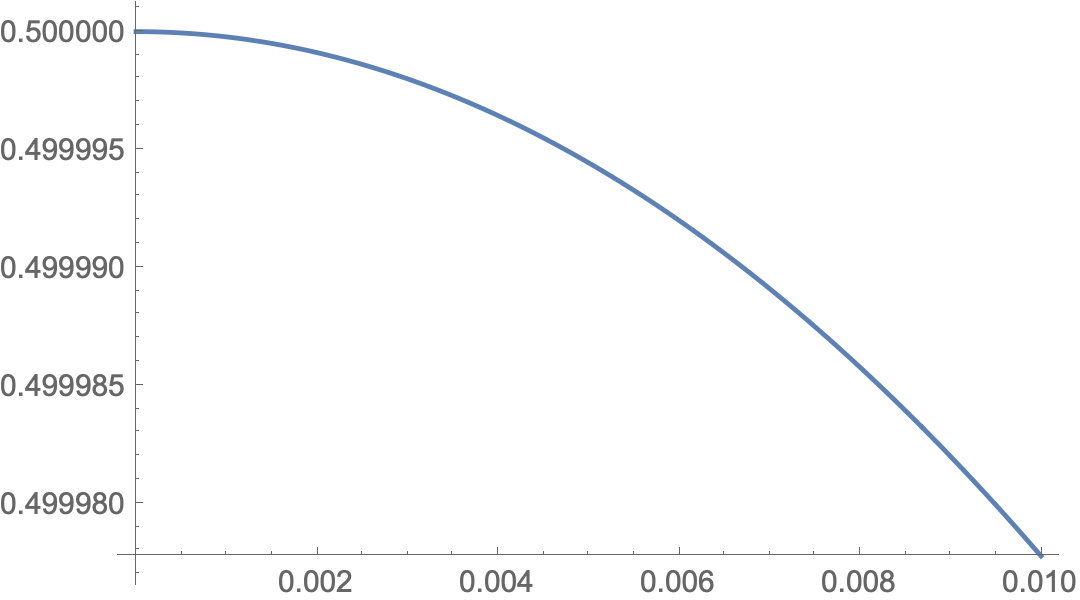I want to quickly calculate the limit value of $\lim _{x \rightarrow 0} \frac{\int_{0}^{x} t \ln (1+t \sin t) d t}{1-\cos x^{2}}$.
But using the code below I need to take 40 seconds to get the result:
Limit[Integrate[t*Log[1 + t*Sin[t]], {t, 0, x}]/(1 - Cos[x^2]),
x -> 0]
I get an error message if I use the numerical method to solve:
Needs["NumericalCalculus`"]
NumericalCalculus`NLimit[
Integrate[t*Log[1 + t*Sin[t]], {t, 0, x}]/(1 - Cos[x^2]), x -> 0]
What should I do to get the correct limit value quickly?


Series[Integrate[t*Log[1 + t*Sin[t]], {t, 0, x}]/(1 - Cos[x^2]), {x, 0, 1}] // Normal$\endgroup$